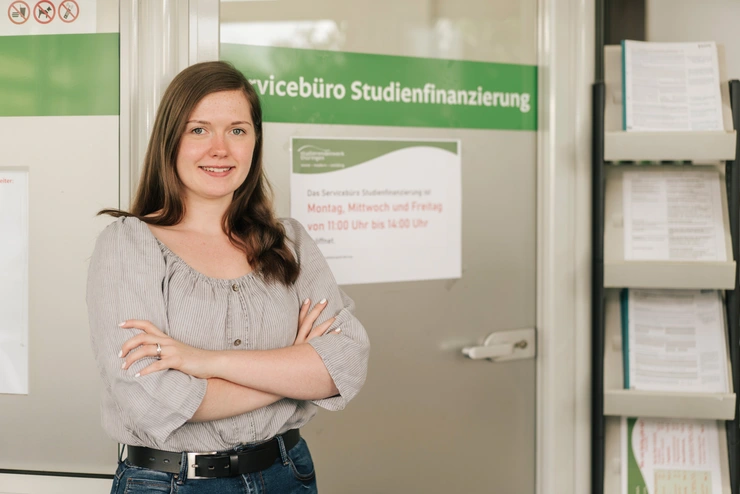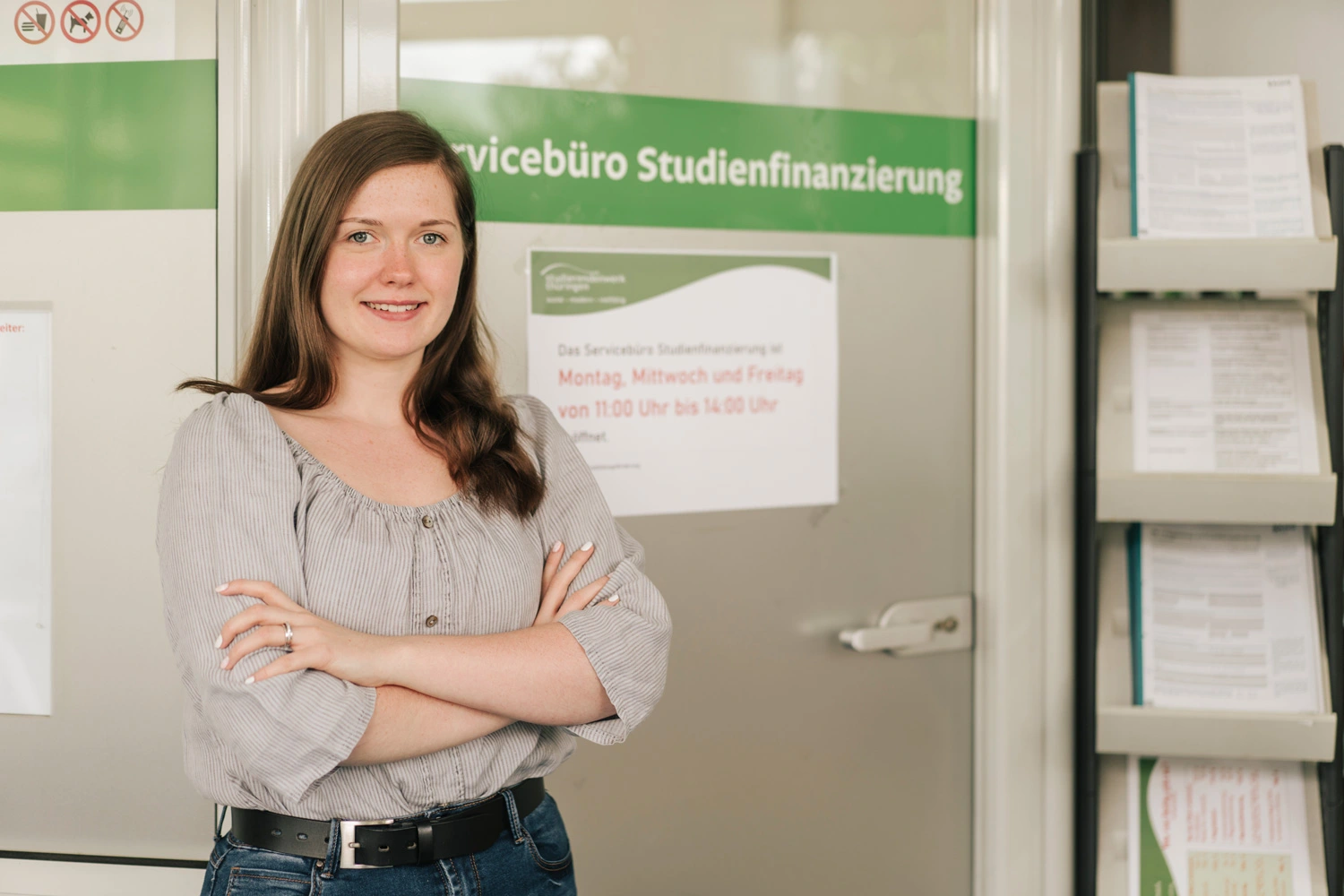Possibilities for financing studies
Even though there are no general tuition fees in Thuringia: Studying costs money. That is why you should think about the costs you will have to expect and how you want to finance your studies early on. Whether it is semester fees or expenses for learning materials, rent, food, travel costs or telephone - what you think about from the beginning will not break your budget later on.
What does it cost to study?
Students spend 198 € per month on food and 46 € on clothing. The monthly expenditure for learning materials such as specialist literature, stationery, copies, printer cartridges, which can vary depending on the chosen field of study, amounts to about 31 €.
The monthly expenditure for a car and/or public transport is 89 €.
Free travel
Students at the University of Erfurt and the University of Applied Sciences only incur costs for public transport outside of Thuringia, as the semester ticket entitles you to free use of trams and buses in Erfurt and regional transport in Thuringia. Excluded from this is long-distance travel on the Deutsche Bahn (ICE/IC).
Until the age of 25, there is the possibility of family insurance in the statutory health insurance. Those who do not have family insurance must expect to pay about 100 € per month for German statutory health insurance.
The expenses for telephone, internet and television fees as well as postage amount to 31 € per month.
The monthly expenses for leisure, culture and sports are calculated at about 65 €.
When you register at a university, you have to pay the semester fee, which varies from university to university. It is made up of contributions to the Student Services Organisation (Studierendenwerk) and the Student Council (StuRa). In addition, other benefits, such as the semester ticket, can be financed through this fee. The semester fee at the University of Erfurt (Studierendenwerk, Student Council and semester ticket) is currently around € 286.
There are no general tuition fees in Thuringia.
These costs can be expected on average per month:
| Type of expenditure | Expenditure in euros |
|---|---|
| Rent in Erfurt | 330 |
| Food | 198 |
| Means of transport | 89 |
| Leisure/Culture/Sport | 65 |
| Health insurance & Co. | 100 |
| Clothing | 46 |
| Telephone/TV/Web | 31 |
| Learning materials | 31 |
| Semester fee Uni Erfurt | 46 |
| Total costs per month | 936 |
How can I finance my studies?
Students with disabilities and chronic illnesses or students with children can claim additional support from the Student Services Organisation (Studierendenwerk).
Publicly and privately provided student loans can be useful in certain study phases or for financing peaks to secure living expenses. Before taking out a loan, however, it is important to check if you are eligible for it, and to compare the conditions, such as the repayment terms.
Student loans
- KfW-Förderbank, Deutsche Bank and Deutsche Kreditbank (DKB) distribute such loans nationwide.
Education loan
- Students in advanced stages of their education can apply for an education loan from the Federal Office of Administration. This loan is granted - completely independently of BAföG - for a maximum of 24 months in monthly instalments of up to €300.
Bridging loan in cases of hardship
- Students who are in need can also obtain bridging loans through loan funds.
Student loans under test
The CHE (Centre for Higher Education Development) provides a detailed description and evaluation of 40 student loans and education funds.
The selection criteria for awarding a scholarship vary widely: in addition to particularly good performance, social aspects and social commitment can also be decisive for funding. Only three percent of all students in Germany currently receive a scholarship, but there are more than 2,000 funding opportunities. Scholarship providers such as churches, political parties, companies, trade unions, etc. support scholarship holders with an average of 305 € per month.
Deutschlandstipendium
Germany needs capable young talent. That is why the federal government and private sponsors support committed and talented students with the Deutschlandstipendium. An investment in the future that pays off for everyone.
The University of Erfurt participates in the Deutschlandstipendien programme of the federal government and annually awards scholarships to particularly talented, high-achieving and socially committed students.
Around two-thirds of students have a part-time job during the lecture period and during the lecture-free period. Those in marginal employment ("520-euro jobs") do not lose their entitlement to BAföG funding and family insurance as a result.
International students with residence permit need to check whether they are permitted to work in Germany.
Parents are legally obliged to pay maintenance for their children's studies (§ 1610 Para. 2 BGB). The amount of maintenance is based on the economic capacity of the parents. As an orientation value for an adult student who does not live with his or her parents, a standard requirement of 861 euros per month applies (as of 2020).
Job fairs - from internships to part-time jobs
Job advertisements as well as offers for part-time jobs and internships for students and graduates can be found on the pages of the following project partners.
In cooperation with the Student Council of the University of Erfurt, job offers can be searched for and reported free of charge in the JobTeaser job market: Part-time jobs, internships, positions. They can also register for events, use materials on the topic of job applications, make appointments for a job application portfolio check and create their own profile.
Job offers can be searched for and reported free of charge in the job market of the Studierendenwerk.
The Thuringian Agency For Skilled Personnel Marketing (ThAFF) offers a job and applicant exchange on its website. ThAFF is also the organiser of the annual Thuringian company contact fair academix.
Discounts for students
You can get discounts abroad and in some online shops with the International Student Identity Card.
In addition, students with a valid student ID card receive a wide range of discounts from telephone and internet providers, transport companies, banks, cultural institutions (theatres, museums, cinemas, swimming pools, etc.), hardware and software providers and insurance companies.









